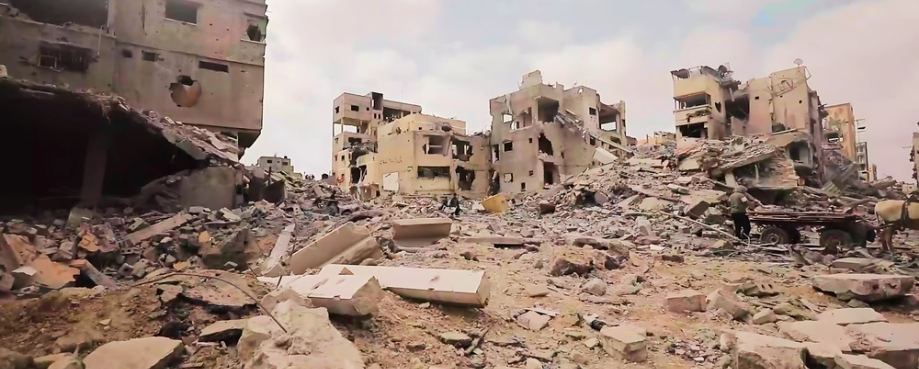
The ongoing attacks on Gaza and restrictions of aid by Israel are utterly devastating.
In particular we note that collective punishment is illegal under international humanitarian law, enshrined in the Geneva Conventions, and that as of August 2025 the UN-backed Integrated Food Security Phase Classification (IPC) confirmed “man-made” famine in Gaza Governorate, with more than 500,000 people facing, “starvation, destitution and death”. We also note the increasing number of voices stating the Israeli state’s activity in Gaza to be genocide, including the UN Special Rapporteur Francesca Albanese, Amnesty International and, more recently, some Israel-based human rights organisations.
Alongside these shocking developments, the events in Gaza and more widely in Palestine and Israel include violations of the basic rights of Palestinian workers to decent jobs and safe and fair working conditions.
The supply chains in the region historically most relevant to ETI members involve agricultural products such as vegetable, fruit and field crops. Within Israel, these sectors rely heavily on migrant workers, including Thai, Indian and Filipino nationals. Until two years ago, there were also many Palestinian workers in these supply chains, who often faced systemic discrimination. However, since the horrific Hamas attacks in October 2023, we understand that the vast majority of permits for Palestinians to work in Israel have been revoked.
For those workers still present in these supply chains, there may also be significant impacts from the conflict. This is particularly the case in border areas and other territories affected by military operations and occupation. These impacts include threats to physical safety, restricted movement, loss of income due to check points or curfews, risk of displacement, and psychological trauma.
The UN Guiding Principles on Business and Human Rights (UNGPs) make clear that states have a duty to protect human rights, and companies have a responsibility to respect them. In a world of growing instability, this means companies need to pay greater attention to understanding their responsibilities in the face of conflict – the process known as enhanced human rights due diligence - to ensure they avoid causing, contributing to, or being directly linked to gross human rights abuses.
It is clear that the Israeli Government is failing egregiously in its duty to protect the rights of people in Gaza. Both foreign governments and companies trading with Israel therefore need to do all they can to ensure they are not contributing to the situation. This means reviewing their trade, as well as adding their pressure through calls for a ceasefire and the immediate provision of aid. The risks include not only potential supply chain disruptions, but also serious ethical, legal and financial risks of being linked to human rights abuses or violations of international law.
Companies should undertake such a review in line with the guidance from the UNGPs, the UN Guidance on Business and Human Rights in Challenging Contexts, and the OECD Guidelines for Multinational Enterprises.
ETI will continue to listen to and support our members on this issue.
